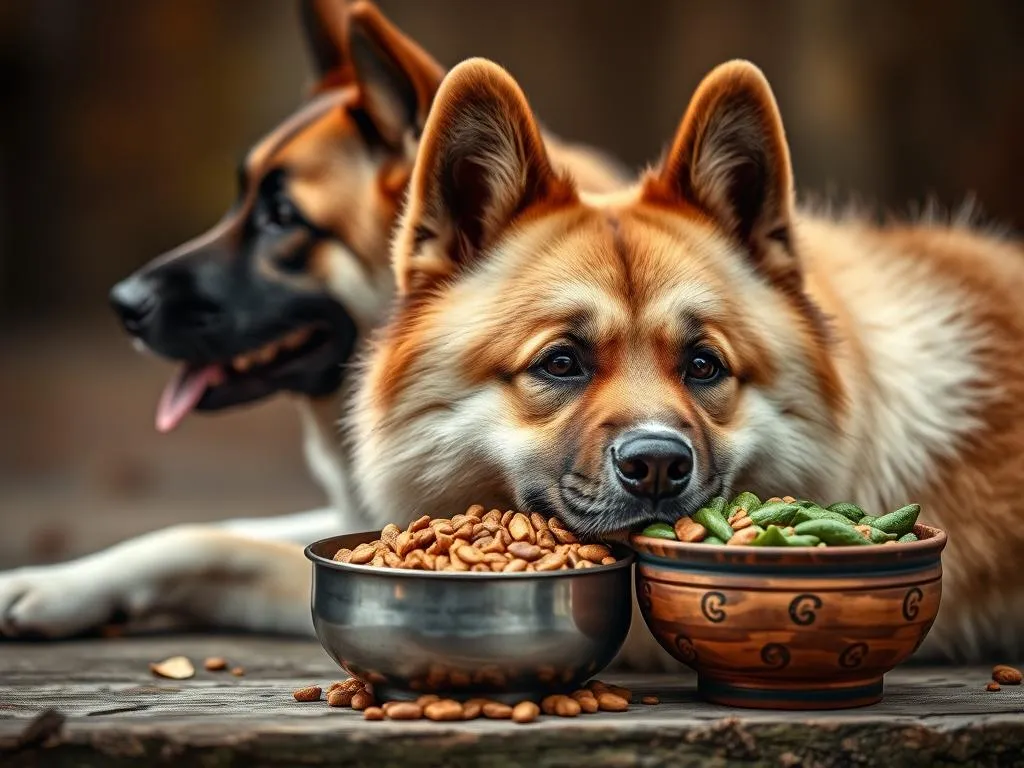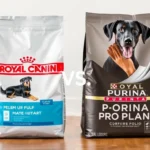
Introduction
Proper nutrition is vital for the health and well-being of our furry friends. Just like humans, dogs require a balanced diet to thrive, and this is especially true for specific breeds like the Akita. Known for their loyalty, intelligence, and strong-willed nature, Akitas have unique dietary needs that must be considered when choosing their food.
This breed can be prone to certain health issues such as hip dysplasia and skin allergies, making it crucial for Akita owners to understand their nutritional requirements and choose the best dog foods for Akitas.
Understanding Akita Nutritional Needs
General Nutritional Requirements
When selecting dog food, it’s essential to consider the three macronutrients: proteins, fats, and carbohydrates.
- Proteins are crucial for building and repairing tissues, especially for active breeds like the Akita.
- Fats provide energy and are vital for healthy skin and coat.
- Carbohydrates serve as an energy source and aid in digestion when they contain sufficient fiber.
Additionally, vitamins and minerals play a significant role in maintaining overall health. They support functions ranging from immune response to bone health.
Specific Needs for Akitas
Akitas have specific caloric requirements that vary based on their age, weight, and activity level. Adult Akitas typically require between 1,200 to 1,800 calories a day, while puppies may need more due to their growth. It’s important to adjust their caloric intake to avoid obesity, which this breed can be prone to.
This breed also has unique health considerations. Conditions like hip dysplasia require a diet that supports joint health, while skin allergies may necessitate grain-free or limited ingredient diets.
Key Ingredients to Look for in Dog Food
High-Quality Protein Sources
Animal-based proteins are the foundation of a healthy diet for Akitas. They contribute to muscle health and overall vitality. Look for high-quality protein sources such as:
- Chicken
- Beef
- Fish
These proteins not only provide essential amino acids but also support a strong immune system.
Healthy Fats
Healthy fats, particularly omega fatty acids, are important for maintaining a healthy skin and coat. They also help reduce inflammation. Recommended fat sources include:
- Fish oil
- Flaxseed oil
These ingredients can improve coat condition and help in the management of skin allergies.
Digestible Carbohydrates
Digestible carbohydrates are crucial for energy and digestive health. Fiber aids in digestion and helps regulate blood sugar levels. Good carbohydrate sources for Akitas include:
- Sweet potatoes
- Brown rice
These ingredients are not only nutritious but are also gentle on sensitive stomachs.
Essential Vitamins and Minerals
A balanced diet should also include essential vitamins and minerals. Important vitamins for Akitas include:
- Vitamin E for skin health
- Vitamin A for vision and immune function
- Calcium and Phosphorus for strong bones and teeth
These nutrients support overall health and help prevent common health issues associated with the breed.
Types of Dog Food for Akitas
Dry Kibble
Dry kibble is convenient and has a longer shelf life than other types of dog food. It can also help with dental health by reducing plaque buildup. However, not all kibble is created equal. Look for brands that emphasize high-quality ingredients and avoid fillers. Recommended brands for Akitas include:
- Blue Buffalo Life Protection
- Taste of the Wild
Wet or Canned Food
Wet or canned food can be more palatable for dogs, especially those who are picky eaters or have dental issues. They provide a higher moisture content, which is beneficial for hydration. However, wet food can be more expensive and has a shorter shelf life. Some top choices for Akitas include:
- Hill’s Science Diet
- Wellness CORE
Raw Diet
A raw diet consists of uncooked meat, bones, fruits, and vegetables. Proponents argue that this diet mirrors what dogs would eat in the wild and can lead to improved health. However, it requires careful planning to ensure nutritional balance. If considering a raw diet for your Akita, consult with a veterinarian to ensure you are meeting all their dietary needs.
Homemade Dog Food
Preparing homemade dog food can be a rewarding option for owners wanting to control their Akita’s diet. It’s vital to ensure that meals are balanced and include all necessary nutrients. When cooking for your dog, keep the following in mind:
- Proteins: Cooked lean meats
- Carbohydrates: Cooked grains or veggies
- Fats: Healthy oils like olive or fish oil
Safety is paramount, so avoid toxic foods such as onions, garlic, and chocolate.
Top Recommended Dog Foods for Akitas
Premium Commercial Brands
When it comes to the best dog foods for Akitas, several premium brands stand out. Here’s a selection of top-rated options:
- Orijen Original Dog Food: High in protein from fresh, regional ingredients.
- Merrick Grain-Free Texas Beef & Sweet Potato Recipe: Rich in protein and fiber, supports healthy digestion.
Grain-Free Options
Some Akitas may benefit from a grain-free diet, particularly if they have grain sensitivities. Recommended grain-free dog foods include:
- Canidae PURE Limited Ingredient Grain-Free: Features only 8 key ingredients, perfect for sensitive stomachs.
- Taste of the Wild High Prairie Canine Recipe: A protein-rich formula that includes roasted bison and roasted venison.
Limited Ingredient Diets
For Akitas with food allergies or sensitivities, a limited ingredient diet may be the best choice. These diets minimize potential allergens and provide a simple ingredient list. Suggested brands include:
- The Honest Kitchen Whole Grain Turkey Recipe: Made with whole, natural ingredients and easy to digest.
- Natural Balance L.I.D. Limited Ingredient Diets: Focuses on a single animal protein and a limited number of carbohydrate sources.
Transitioning to a New Dog Food
Importance of Gradual Transition
When changing your Akita’s diet, a gradual transition is crucial to avoid gastrointestinal upset. Sudden changes can lead to diarrhea, vomiting, or loss of appetite.
Step-by-step Guide to Transitioning
To transition your Akita to a new food, follow these steps:
- Days 1-2: Mix 25% new food with 75% old food.
- Days 3-4: Mix 50% new food with 50% old food.
- Days 5-6: Mix 75% new food with 25% old food.
- Day 7: Feed 100% new food.
Monitor your dog’s reaction throughout the transition. If any adverse symptoms occur, slow down the transition process.
Common Dietary Issues in Akitas
Food Allergies and Intolerances
Akitas can be prone to food allergies and intolerances. Signs may include itching, gastrointestinal upset, or changes in coat condition. If you suspect your dog has a food allergy, consult with a veterinarian. They may recommend an elimination diet to identify the offending ingredient.
Obesity and Weight Management
Maintaining a healthy weight is crucial for Akitas, as obesity can exacerbate health issues such as hip dysplasia. Monitor your dog’s food intake and ensure they are getting regular exercise. Portion control and avoiding excessive treats are essential for weight management.
Conclusion
Choosing the right food for your Akita is pivotal for their overall health and happiness. By understanding their specific nutritional needs and selecting high-quality ingredients, you can help ensure your dog leads a long, healthy life. Always consult with a veterinarian for tailored dietary recommendations specific to your Akita’s health and lifestyle.
Frequently Asked Questions (FAQs)
What should I avoid feeding my Akita?
Avoid foods that are toxic to dogs, such as chocolate, onions, garlic, and grapes. Additionally, steer clear of overly processed foods and those with fillers like corn and soy.
How often should I feed my Akita?
Adult Akitas typically do well with two meals a day. Puppies may require three to four smaller meals throughout the day.
Can I mix different types of dog food?
Mixing different types of dog food can be done, but it’s important to ensure that the combined foods provide balanced nutrition. Make any changes gradually to avoid digestive upset.









